Promoting Economic Inclusion and Self-Reliance of Forcibly Displaced Persons in Africa through Humanitarian, Development and Peace Nexus Approaches
August 20, 2025 12:30-14:00(JST)
- Date
- 2025/8/20 (Wed)12:30-14:00(JST)
- Field
- Refugee issues
- Venue / Event Format
- InterContinental / Hybrid (In-person and Online)
- Co-Host
- UNHCR, UNDP
Background
Displacement situations are becoming increasingly protracted and complex, with millions of individuals remaining in exile for year or even decades. According to UNHCR, over 120 million people were forcibly displaced by the end of 2024, marking a record high. Simultaneously, global crises, including armed conflicts, climate change and economic instability, are escalating, placing immense pressure on already fragile systems. Despite growing needs, humanitarian and development funding are facing sharp decline.
In this challenging context, and in line with the principles of the Global Compact on Refugees, it is critical than ever to promote social and economic inclusion of displaced persons into host communities. Supporting the inclusion of refugees and other displaced population in the national systems and services of host counties not only enhances their self-reliance, but also improves the quality, availability and accessibility of services for host communities. Evidence shows that inclusive policies can lead to improved economic outcomes, reduced aid dependency, and stronger social cohesion.
The Humanitarian-Development-Peace (HDP) Nexus is a strategic approach that seeks to ensure coordination, coherence and complementarities between emergency humanitarian response, mid- to long-term development, and peacebuilding efforts. During the 2nd Global Refugee Forum in December 2023, the Government of Japan and the UNDP jointly launched the HDP Nexus Multi-Stakeholder Pledge to promote collaboration and whole-of-society approach to the displacement crisis. The Nexus approach is essential in order to realize the social and economic inclusion of displaced persons, by supporting the transition from humanitarian assistance to national development framework, and to ensure peaceful co-existence within communities.
This high-level thematic event will be an opportunity to hear from the two leading countries in promoting inclusion, Kenya and Mauritania, and to discuss the challenges and the way forward to promote especially the economic inclusion and development in this financially challenging times.
Key Questions
- What positive socio-economic impacts can the economic inclusion of refugees have on host countries and regions?
- What are the main challenges in promoting the socio-economic inclusion of refugees, and what policy and institutional measures are being taken to address them?
- How can humanitarian, development and peace actors contribute to promote the economic inclusion of displaced persons?
- What role do regional organizations have given the context of Africa?
- What financial and institutional support is being provided to promote the economic self-reliance of refugees and host communities and strengthen local economies?
- How can the private sector be more effectively engaged?
Objective
Building on the broader regional context, this event will explore best practices and potential initiatives to advance economic inclusion of refugees for self-reliance and the socio-economic development of host countries and communities. It will reaffirm the importance of HDP Nexus approach, particularly in light of declining humanitarian funding, and seek to generate renewed momentum and action. Also, taking the opportunity of TICAD 9 being hosted in Japan, this event will also aim to raise awareness of refugee affairs and encourage greater engagement from Japanese private sector.
Speakers
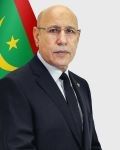
- H.E Mohamed Ould Ghazouani
- President of the Islamic Republic of Mauritania
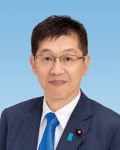
- Mr. MATSUMOTO Hisashi
- Parliamentary Vice-Minister for Foreign Affairs
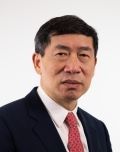
- Mr. Haoliang Xu
- Acting Administrator, UNDP

- Mr. Raouf Mazou
- Assistant High Commissioner - Operation, UNHCR

- H.E Musalia Mudavadi
- Prime Cabinet Secretary and Cabinet Secretary, Ministry of Foreign and Diaspora Affairs, the Government of Kenya
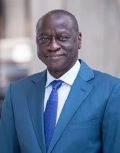
- Mr. Ousmane Diagana
- Vice President for Western and Central Africa, World Bank
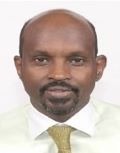
- Ambassador. Moussa Ali Meigague
- Director of Health and Social Development Division, IGAD

- Mr. Nozomu Kobayashi
- Managing Director, FL 360 (PTY) LTD
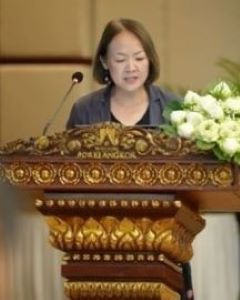
- Ms. Komukai Eri
- Senior Advisor on Peacebuilding, JICA

- Ms. Miyazaki Katsura
- Executive Senior Vice President, JICA


